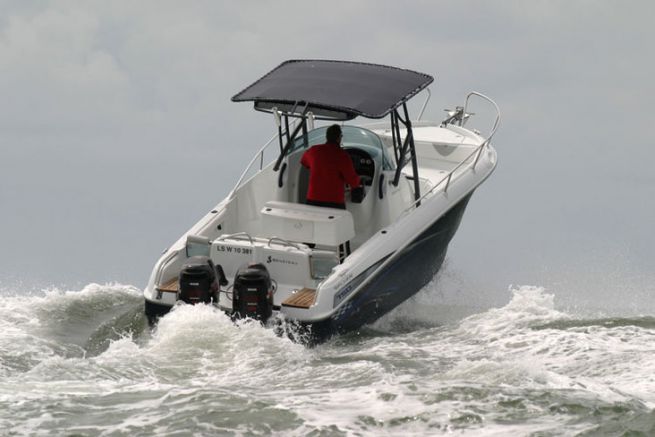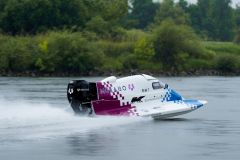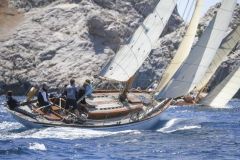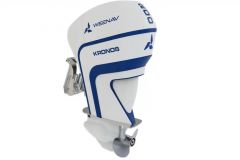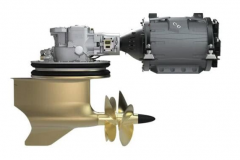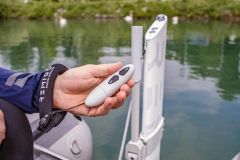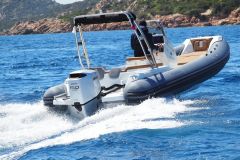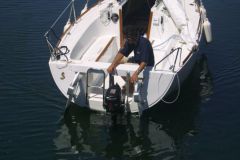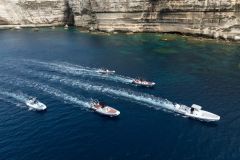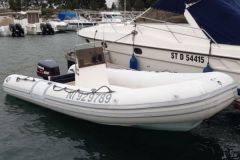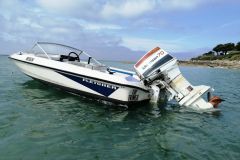One or two engines? In theory the answer is simple: in most cases, a boat goes faster with only one motor than with two (at the same power). But there are other advantages (but also disadvantages) to both types of drives.
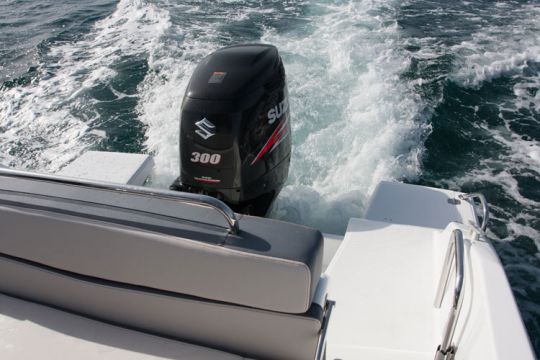
SINGLE-ENGINE ADVANTAGE
1 - an engine weighs less than two
Lighter, the boat is therefore faster.
2 - an engine has less drag than two
The bases and the two propellers offer more drag in the water (therefore more friction) so the single engine goes faster
3 - An engine consumes less than two
On this point, the advantage is really to the single-engine engine, which will always consume much less fuel than the two engines at the same speed.
4- A single motor (even more powerful) costs less than two
At the time of purchase, the price difference is very large even if you only take one 300 hp compared to 2x150 hp.
5- Maintenance is easier and less expensive on a single engine
With only one overhaul, one oil change, one wintering... The maintenance bill is lower on one engine than on two.
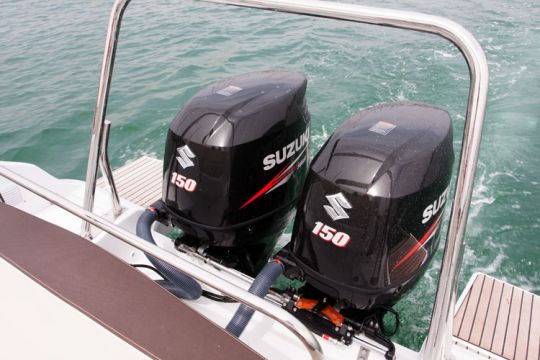
DUAL ENGINE ADVANTAGE
1- A single motor causes a torque phenomenon
With a single propeller, the boat tends to lie on the side of the rotation and when starting, before gaining speed, it can also skid on the side. This phenomenon does not exist with a twin-engine engine, especially since they are in counter-rotation (the propellers rotate in the opposite direction).
2 - Two engines are easier to operate
Manoeuvring, particularly at idle speed in ports, is made easier with two engines. The boat can be rotated in place by putting one motor forward and the other backward. It's much more difficult with only one engine.
3 - Two motors ensure greater safety
We always imagine the failure that can render an engine unusable. If we have two of them, we have a better chance of getting back to the port. Be careful, however, that the two motors are not connected to the same tank. If the failure is due to the fuel supply, both engines will stop simultaneously...
This redundancy can be useful for boaters who navigate offshore, far from the coast. But for the others who remain within VHF range, dual-engine power is much less justified.
And thanks to the diabolo system, the rigging can be adjusted in all directions.
Whatever your choice, keep in mind that the pleasure on the water is not related to the number of engines. It's not the one who has the most who's the happiest!
